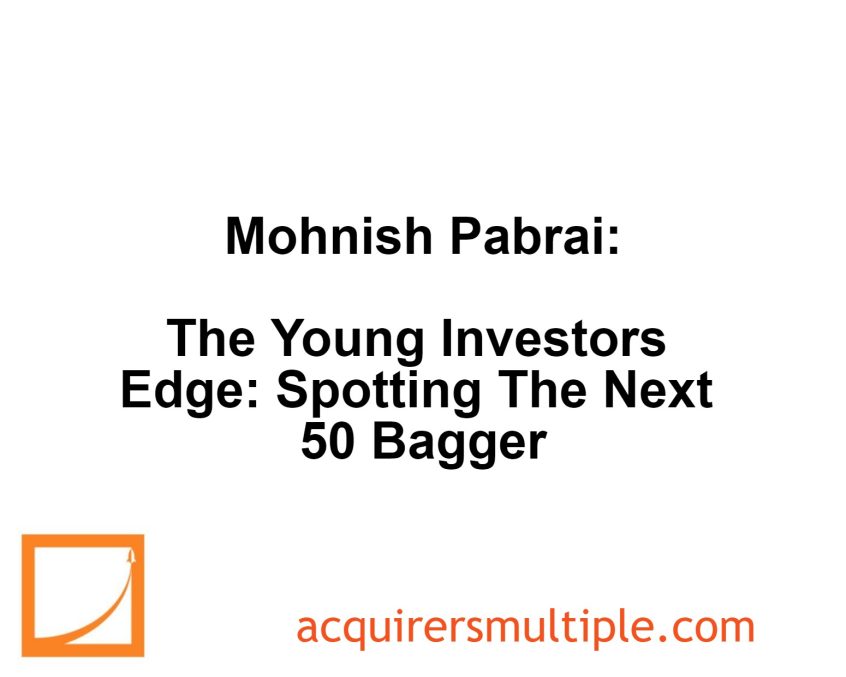In this interview with MIT’s Brass Rat Investments, Mohnish Pabrai explains why young people have a distinct advantage in identifying emerging trends and investment opportunities due to their proximity to cultural and technological shifts.
He highlights historical examples, like the rapid decline of landlines first observed among college students and the early adoption of Facebook at prestigious universities, which were indicative of broader societal changes.
He advises young investors to capitalize on their firsthand experience with new products and services, suggesting that making a detailed list of these could reveal potential future investments. This list, particularly of publicly traded companies whose products they use, could become a valuable resource for spotting companies likely to grow significantly over the coming decades.
Here’s an excerpt from the interview:
Pabrai: Actually you have a big advantage over me in finding those great nuggets and those great future opportunities.
The reason you have an edge over me is because you are young and you are in a place where there’s a lot of change taking place.
And so for example landlines, which you may not know what a landline is, that’s okay. But the first people who disconnected landlines were college students.
So there was a time in this country where everyone had a landline phone. Like if you watch Seinfeld you might see a landline phone.
And it was at the college campuses where the cord cutting on landline phones happened first. And it came much later to mainstream America.
That was a very gradual kind of 20 year transition. It used to be accepted wisdom that 2% of the population would subscribe to cell phone service.
And once you reached 2% of the population you were at saturation because cell service was so expensive that nobody beyond that 2%, and also you know so just the infrastructure and all of that just made it hard.
We are at 100% today right, or close to 100%. So Facebook started on Harvard campus. And it was only for Harvard students initially.
And then they expanded to other ivy league, MIT was probably right there, probably the top four or five campuses.
And so the students at Harvard, the students at MIT knew what Facebook was all about at least eight or 10 years before the the rest of the old people like me. There was a huge advantage.
So what I’m saying is the thing that you should do make a list of every product and service that you have consumed in the last couple of years.
So what brand of clothing are you buying? What perfumes are you buying ? What online services are you buying?
Make a list of every dime. Do you go to Sweet Green for lunch/ Do you go to Chipotle for lunch? So the college students were the first to go to Chipotle.
They knew about Chipotle before the rest of the world a long time ago. So if you made a list of everything that you spend anything more than 5 cents a month. It’s very difficult for a company to convince you to even give them $1 a year or $1 a month, it’s very difficult.
They have to really prove themselves. And there has to be something there. And if you made that list and you put it away somewhere.
So make a list of all the publicly traded companies that are products and services that you are using today. And if you fast forward 10 or 20 years and just look at that list there will be 50 baggers from that list.
And so there’s already a short list you have and now you just have to do work on that short list, and I can’t do that, but you can. You have a big edge.
You can watch the entire discussion here:
For all the latest news and podcasts, join our free newsletter here.
Don’t forget to check out our FREE Large Cap 1000 – Stock Screener, here at The Acquirer’s Multiple:



